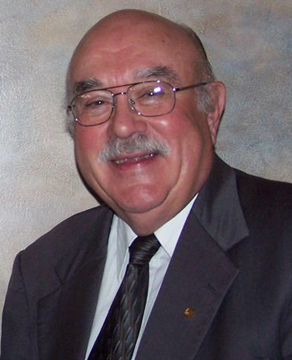Purdue Profile: Daniel Padberg
March5, 2014
 |
|
Daniel Padberg, associate professor of communication. (Photo provided) |
Even after 45 years of collegiate teaching, Daniel Padberg still enjoys sharing his love of communication and theatre with his students.
Since 1993, Padberg has been a full-time assistant and associate professor of communication at Purdue North Central, where he teaches both communication and theatre classes, including a class called An Introduction to Oral Interpretation, which Padberg helped develop. Now in its 25th year, this class allows students to orally interpret literary works through a program called Reader’s Theatre.
How did you become interested in communication and theatre?
I cannot really remember a time when I was not interested in theatre and performance. When I was a kid growing up in St. Louis, my parents attended theatre performances, especially musicals, and I was always taken along. In school, I was active in music and theatre. When I took Theatre Appreciation my freshman year at college, I realized that one could actually major in such a wonderful subject. In those days, the major was called “speech and theatre.” As I was an education major working for secondary school certification, I was told that I needed to major in English also.
What inspired you to include Reader’s Theatre in the Oral Interpretation class?
Oral Interpretation is about performing pieces of literature before an audience. Every class becomes the audience for the students and their assignments, which focus on the various genres of literature. Analysis of the literature is also required to teach the students literary structures, which they present in performance.
One of the principal focuses of oral interpretation has been to teach students how to use their voice and body in performance. Oral Interpretation focuses on these skills in an acoustical space, rather than the pictorial space of the theatre stage. Many of the methods are similar to acting, but the emphases are different.
Public performance through our Reader's Theatre programs adds another important dimension, that of the different audience. The Readers Theatre programs, presented for the public in a large assembly room, expose the students to yet other important learning experiences that will shape their abilities. For each selection illustrating the program’s theme, individuals or groups of students will rise, walk toward the audience and use their scripts to perform their selections.
What other involvement with theatre performance activities have you had at Purdue North Central?
While still a part-time faculty member, I was asked in 1991 to direct a musical that was presented in the University’s cafeteria. The success of this production allowed planning to begin for a theatre production activity at PNC that would be operated by the Communication Department and funded through student activity fees. I directed the theatre program at PNC from 1993 until 2004. We presented one play in the fall semester and the Reader’s Theatre program each spring semester by Oral Interpretation classes.
What do you find most rewarding as a professor, and what is your favorite part of your job?
The best part of my job and the things that have been most rewarding over the many years is the interaction with the students. I truly believe that the university must always exist first and foremost for them. I love my classes, and I try to teach my students in ways that make whatever subject is being taught as personal to them as possible. If what we impart to our students is not relevant to their lives, now or in their futures, then perhaps faculty should rethink the material’s value or the mode of presentation. I truly believe faculty have a professional obligation to make their courses meaningful and relevant to their students.
What are some of your hobbies and interests outside of the classroom?
One of my interests is musical theatre. I have done research on musical theatre in America, and in the past have taught a class in The History and Development of the American Musical Theatre. I include a short unit in my Theatre Appreciation classes on the musical.
My other research interest is German language theatre in the United States, a 19th-century phenomenon where German immigrants used theatre to preserve their linguistic heritage and culture into subsequent generations. Through this study, I have been fortunate to participate in many European conferences.
My hobby of genealogical research began when I was about 14 years old. My family has created an international organization to preserve the heritage of our ancient roots that go back into the Middle Ages. I am a registered genealogical researcher in Germany and am responsible for the records of all of the descendants of the 32 branches of the Padberg families who immigrated to the Americas. When I go to partial retirement next fall, I plan to write a book about these immigrant families.
Writer: Hannah Harper, harper4@purdue.edu
